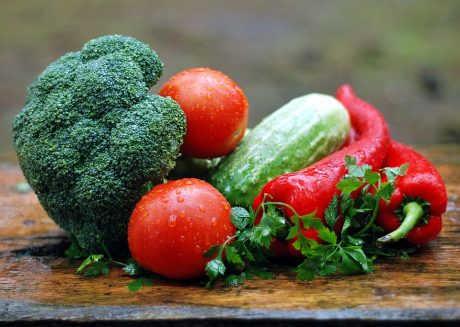By: Neil C.A. Paul
We in the Caribbean are faced with increasing food bills and escalating costs of food in the context of highly volatile prices. The food security situation is alarming when one considers that the food import bill in the region is upwards of five billion US dollars.
In the recent past, rising food prices globally sparked off a series of debates among academics, farmers, the private sector, government officials and politicians. The debates attempted to apportion blame for the food price hikes to various quarters including the bio fuel industry primarily where food such as corn and other grains are used in the production of ethanol.
The rising cost of oil had also been included in the equation of the rising prices, as it should. Although the price of oil has dropped from record levels in recent times, the price volatility remains and as such is still relevant. There are other causes as well which includes increased demand as a result of improved standards of living in some developing countries particularly, China and India, severe weather conditions such as droughts and floods, wars and other human conflict and so on.
But how did we get here in this disturbing situation? Well, Caribbean countries, since the 1980s, adopted the paradigm of buying then cheap food from the world market and in effect “put the sword” to the domestic agricultural sector which could not compete favourably. The result of that strategy is unsustainable food import bills. These countries have also been locked in export-led commodity production such as bananas, sugar, rice, cocoa and coffee. The problem with that approach is that the Caribbean countries continue to be trapped in the import – export paradigm of the 1970s and 1980s and are still revisiting the productivity issues and the policies of export-led agricultural development to deal with food security.
As a result of the high food prices and the high fuel costs, it may well be that producing food for the domestic market is now a viable consideration and may even be economically feasible. However, there are concerns that as a result of the neglect of the domestic agricultural sector, many of the valuable indigenous institutions such as the marketing boards and farmers’ cooperatives are now relegated to the past. In fact, there are also concerns that production skills are also on the decline as many farmers left the agricultural sector to work in the tourism sector, with the neglect of the domestic agricultural sector in many Caribbean countries.
It is for these reasons why the causes of the current situation must be properly analyzed and understood. This opportunity to rethink concepts such as self-reliance, self-sufficiency and food sovereignty must be put to good use. It is important to consider these concepts in any strategy being developed ensure the security and sovereignty of food resources in this part of the global landscape, particularly as it relates to the current food Import Bill. Another important consideration, also highlighted by the South Centre, is that…
“developing countries must also use the opportunity to consider features of the global landscape which have caused countries to place greater importance on the production of food over export crops, and imports over local production, and which have affected national ownership and control over main resources for food production”.
In this regard economic theory such as economies of scale and comparative advantage have been advanced by the north and those institutions charged with the responsibility for “development” to encourage the importation of then cheap food on the world market and in effect caused a disregard for food sovereignty. Economists are always quick to point out that vulnerabilities of the agricultural sector in this part of the world renders the agricultural sector unviable and unattractive and as such continue to recommend buying food on the world market as a more viable alternative.
The late Lloyd Best, noted Caribbean Economist, although not referring to the current food situation, made the observation that it was not in the Caribbean interest to necessarily adopt the economic theories of developed countries without question. Dean Husbands , another economist and a former public servant of Trinidad and Tobago, noted,“It may not be prudent to place our economic faith entirely and exclusively in one economic philosophy based on the developed country experience for economic prescriptions and solutions”.
The notion that economic theory should always guide our decisions for development must be observed with some exception. The case for food security and food sovereignty are such exceptions.
Neil C.A. Paul is the Director of the Shridath Ramphal Centre. This post was originally posted on Linkedin. To see the original post and discussion, please visit here.


